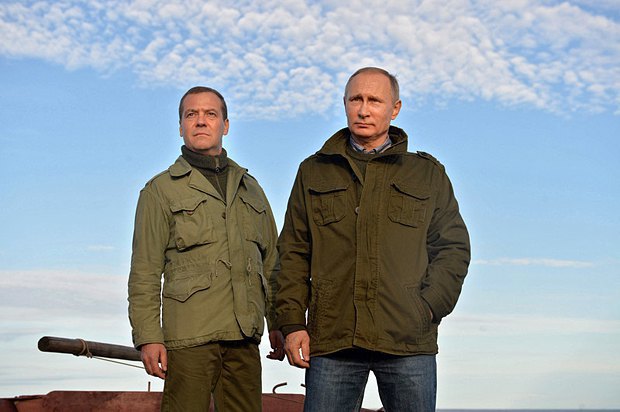
Any forecast would be unreliable. However, trying to answer this question, one can say with a high degree of probability that Russia will continue its external expansion.
This certainty is based on the knowledge of the key condition of survival of any state, that is resources: natural, financial, industrial and human. Let us have a look at how things stand in Russia with regard to resources.
On oil hook
For over a quarter of the century, modern-day Russia has been making living by selling oil and gas abroad. Proceeds from their sale accounted for 64 per cent of federal budget revenues. In fact, it has been using in practice an old idea, which was conceived in the post-Soviet times at the Gaydar Institute of Economic and Math Research and popular among Soviet liberal intelligentsia.
It was a simple idea: Russia did not need to manufacture anything. It should sell oil and gas and use the proceeds to buy machinery and equipment from the West because "it is clear that we cannot make anything except for a pile of poo" (quoting Aleksey Volin who was in charge of the information department of the Russian government in the early 2000s). Certainly, they did not use the word "deindustrialization" but it was meant all along and namely this policy was being conducted. Why? It is another question.
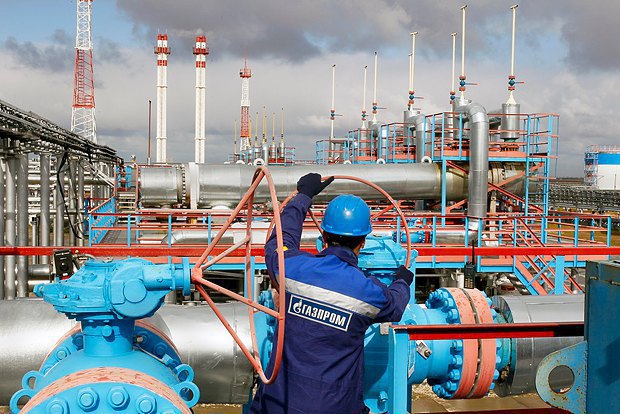
One way or another, Russia has carried out tremendous deindustrialisation. The model "oil+gas in exchange for machinery and equipment" was used in full. Whereas in the dusk of the Soviet Union, only 10 per cent of its budget was guaranteed by returns from oil and gas sale, from the early 2000s to 2014 this figure exceeded 60 per cent.
Generally speaking, this model was deficient from the start but it was working amid exorbitant world prices for oil which marked the first 15 years of Putin's rule. Even after the double slump of oil and gas prices in late 2014-2015, Putin's government spent two years hoping they would bounce back.
The main problem of today's Russia is that the history of oil as a key energy source of the humankind is nearing its end as developed countries increasingly more often switch to alternative energy sources. But for Russia, it would be over much faster than for other countries because for the 25 years, Russian oil companies have been simply pumping out oil from deposits, which were developed back in the Soviet times, and did nothing to prospect for and develop the new ones because it was unprofitable. As a result, the share of hard-to-recover(so-called low-profit) deposits in the total volume of prospected deposits is growing and currently exceeds 60 per cent already, according to the Russian Ministry of Natural Resources.
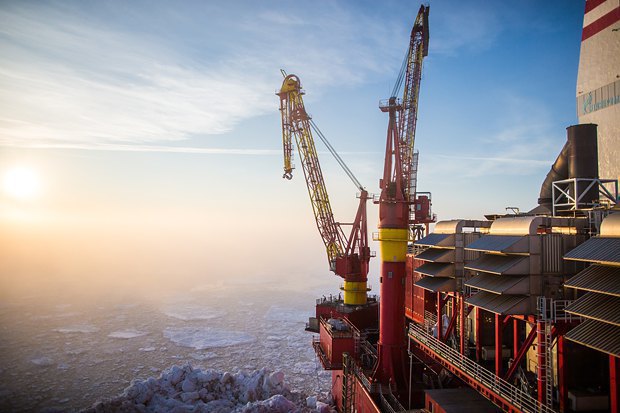
The cost of hard-to-recover reserves is 80 dollars per barrel. With an average oil price today on world markets standing at 50 dollars, who will produce such oil?
As practice shows, a modern state can successfully develop either if it has a strong raw material base, or a developed modern industry.
Read: Russia: how Cheka-coercive model of economy was built
We can see what is happening to the raw materials base of the Russian Federation. There is little modern industry in Russia. There are small clusters presented by foreign companies (for example, in Kaluga and Leningrad regions) but this is not the scale.
Putin has spoken about the need to increase the non-primary processing sector of the economy for almost all 17 years of his reign, but nothing has changed in this area. Recently, Prime Minister Dmitriy Medvedev reported that the share of budget revenues from energy sales has decreased to 40 per cent. However, according to Igor Nikolayev, director of the Moscow Institute for Strategic Analysis, this is only due to a fall in oil prices and a reduction in related revenues.

Thus, there is no serious manufacturing industry in Russia, except for some military defence companies. But you cannot spread tanks on bread.
By the way, bread is a problem too. The cheerful statements of the Russian government of recent years about record harvests and the growth of grain exports usually modestly forget to mention that it is mainly about fodder grain. However, Russian experts say that it can also be eaten. Who would doubt - saltbush, bran, turnips and potatoes – were not the worst food in war and hunger...
Another important resource is the human resource. In Russia, there are 143 million people. According to official Kremlin statistics, together with Crimea, there are 146 million. Add to this about 2 million people living in the territories of eastern Ukraine (notorious Donetsk and Luhansk separatist republics) captured by Russia. Like cannon fodder and workforce, these people are in fact now at the disposal of the Putin regime.
Read: How the world should react to Russia's terrorist-destructive efforts
Thus, in total, Russia, after all the latest annexations, controls about 150 million people. Is this a lot or a little? The population of the European Union, even if we exclude the UK (although this is a controversial issue because, for example, the United Kingdom does not intend to leave NATO) is more than 400 million people. The USA has 317 million, China almost 1.4 billion.
As I said on previous occasions, for the past three years Russia has been cutting budget spending on education and health, but at the same time, increasing military spending. As to the share of military spending in the total budget expenditures, Russia has outrun all major modern countries, including the United States, China and Saudi Arabia.
And this is not accidental. Militarization of the Russian economy is caused not only by the ongoing wars against Ukraine and Syria. Increasing government spending on war is also a way for the modern Russian economy, and hence for the regime, to survive. And here again a comparison of Putin's Russia and Hitler's Germany would be appropriate.
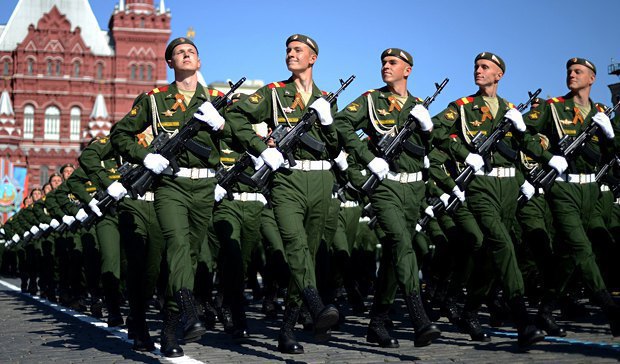
They already had this before
A specialist in the history of Nazi Germany, Soviet and Moldovan historian, Samson Madievski. wrote in his review of the book of ta prominent modern German historian and researcher of the Third Reich social and economic policy, Götz Ali:
"The re-armament of Germany, which helped to eliminate unemployment and increase the purchasing power of the masses, was carried out at the expense of huge loans, which led to a rapid growth of domestic public debt. It [Germany] ran a huge budget deficit, and by the end of 1937 Germany stood on the verge of bankruptcy. The way out was found in external expansion (the Anschluss of Austria, the seizure of the Sudetenland, and then the rest of Czechoslovakia) and the expropriation of Jews ... After the quick and easy victories, the financial and food problems arose again. No matter how large the prey and the conquered territories were, the result was always below the expectations. Therefore, Hitler could not stop and get satisfied by exploiting the already conquered. The policy of "uncovered check", state treasury obligations payable in a short term, and the looming large internal debt - in other words, a financial economy functioning on the principle of a fraudulent "snowball" - all this made the Nazi elite objectively incapable of peace. The expansion was to continue, the cessation of it would lead to bankruptcy and the end of the regime"(bold and italics by Zhelenin)).
We are now witnessing something similar in modern-day Russia. One gets the impression, reinforced by the historical precedents of Germany and Italy of the 1930s-40s, that Putin spun the flywheel of his gigantic militaristic machine not only for subjective but also for objective economic reasons. He simply has nowhere to take money from, except by issuing them for military orders.
In addition, there is another important point reinforcing the certainty that the external expansion of present-day Russia will inevitably continue one way or another. The 17 years of Putin's rule have shown that the economic model built by him does not contribute to the self-development of the country at the expense of internal resources. The main resource on which the economy of Putin's Russia relied - oil and gas - is less and less in demand on the world market.
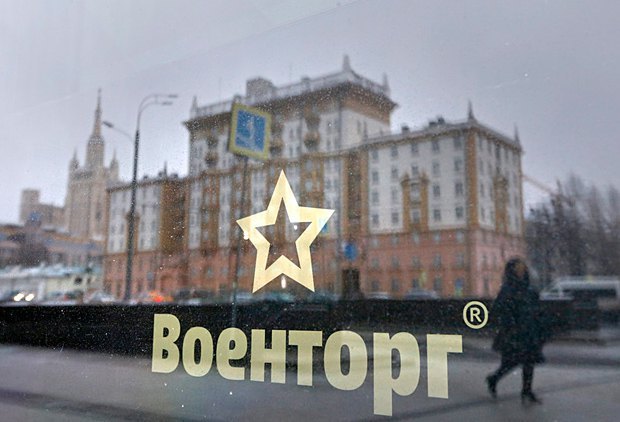
In this regard, the foreign policy of the Russian Federation, which we have seen since about 2008, is simply an open transition to an extensive model of development - through the growth of territories and peoples of other countries.
Thus, the question on whether the military expansion of Putin's state is to continue leaves the framework of a theoretical discussion and moves into a practical domain.
Let's try and predict when and against whom this expansion will continue?
Who is next
Considering the upcoming events, which are important for Putin and should occur in the first half of 2018 (the presidential election and the World Cup), it would be logical to assume that the new aggressive actions of his regime are likely to be expected not earlier than the second half of 2018. We all remember that he annexed Crimea and eastern Donbas after the Sochi Olympics.
Read: 2018 FIFA World Cup: Oh, sport! You are… what?
However, it is possible that Putin may try to present his yet another territorial acquisition to his electorate before this.
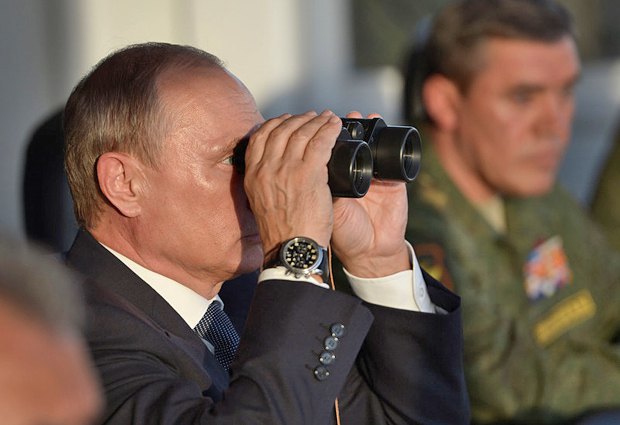
Belarus
For several months, experts have been discussing the possibility of Russian troops "being left" in Belarus after the military exercise West-2017 scheduled to be held there in September. In this case, the Russian army would have hovered over Ukraine from the north and would have made great progress towards Kaliningrad Region, threatening the seizure of southern Lithuania, with the goal of "piercing" a land corridor that would link former East Prussia to the main territory of Russia.
The unprecedented scale of the planned Russian-Belarusian exercises, as well as the strange behaviour of Belarusian President Alyaksandr Lukashenka, only attest to the probability of this scenario.
For starters, the scale. Let me remind you that some time ago, Belarusian experts close to the Foreign Ministry, employees of the Centre for Strategic and Foreign Policy Studies, Yury Tsarik and Arseniy Sivitski, published two reports considering the scenario of Russian troops "being left" in Belarus after the end of military manoeuvres in September 2017. In particular, they made such a conclusion on the basis of the Russian Defence Ministry's reports about the unprecedented number of wagons ordered by this agency for the transport of participating Russian troops, more than 4,000.
The editors of Novaya Gazeta, which published this figure, asked representatives of the Russian Defence Ministry to comment on it. Those answered that allegedly there is no need to worry since the number of wagons intended for the transport of personnel and equipment for participation in the exercise West-2017 is comparable to the past exercises held in Belarus in 2009 and 2013. Say, during the most large-scale exercise in 2009, more than 6,000 wagons were used.
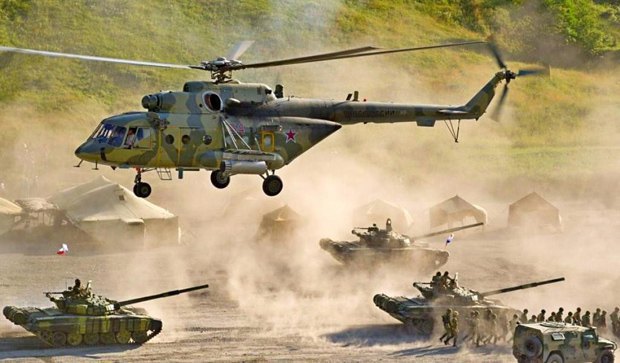
However, the paper's correspondent in Belarus, Irina Khalip, called the representatives of the Russian Defence Ministry for lying: "The chief of the Russian General Staff, First Deputy Defence Minister of Russia Nikolay Makarov said on 12 September 2009 (quoted by the official website of the Russian Defence Ministry): "A large-scale regrouping of troops is underway. Eight trains have already arrived in the Republic of Belarus and 15 echelons are on the move." "It is a total of 23 echelons," Khalip said. Taking into account the fact that the maximum length of a military echelon should not exceed 57 wagons, the total number of wagons used by the Russian Defence Ministry in 2009 could reach a maximum of 1,311 wagons, the journalist wrote in an article dated 29 March 2017.
Thus, it turns out that the number of wagons used to transport Russian soldiers and military equipment to Belarus for this year's exercise will be three times as much as was used for the largest exercise of this kind in 2009. Let us also not forget that in the spring of 2016, the 28th motorized rifle division was relocated from the Urals to Klintsy bordering on Belarus, Khalip recalls. And this is another 10,000-12,000 troops.
And recently Russia took a decision to transfer 12 new Su-30SM attack aircraft to Belarus for 600m dollars, which is too cheap for such contracts.
Is the president of Belarus aware of the threat looming over his country? Of course, yes. He is not the one to be suspected of carelessness or naivety. We will not forget Lukashenka's words, which he said back in 2014 after the annexation of Crimea and the beginning of Putin's incursion in eastern Ukraine. Appearing on Savik Shuster's talk show then, he said that if such a thing happened in Belarus, he himself would go into the woods with a machine gun. That is, he considered this scenario three years ago.
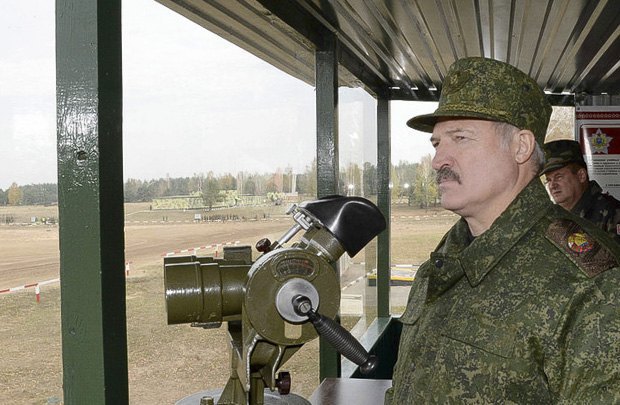
In addition, I will remind you that the report about 4,000 wagons for the transport of Russian troops to Belarus and their possible "stay" after the end of the training was written by analysts close to the Foreign Ministry.
Moreover, realizing the possibility of this scenario, Alyaksandr Lukashenka is training people's self-defence teams in advance, which Belarusian experts recently discussed at a news conference in Moscow. Belarusian political analyst and journalist Dzyanis Lawnikevich recalled that in 2016, the Belarusian leadership had considerably changed the military doctrine of the country, having also introduced the concept of "hybrid war" to it.
Against this background, Lukashenka's words look rather strange. In fact, his remarks lately boiled down to a statement that the West-2017 exercise poses no danger to other countries. And for now it may really be so: today it is dangerous to one country only, that is to Belarus.
Why, considering all these circumstances, will the Belarusian leader not cancel this exercise or delay it comes the most interesting thing. From the mass of information that is available today on this issue, the only conclusion arises: Putin may have made Lukashenka an offer that he could not refuse.

Here is what we are talking about. Let me remind you that Russia and Belarus are legally already a single state - the Union [State] of Russia and Belarus. Of course, so far this union has existed mainly on paper. For example, it has a common government and even a pretty impressive and well-paid bureaucracy. You will laugh but this Union State even has its own Council of Ministers. But here's the problem: it has the Council of Ministers but no prime minister. It also has the common Parliamentary Assembly, which, however ... also does not have a speaker. Let us not mention the endless customs conflicts of this very "union state" because this topic is so shopworn already ...
But it seems that everything can change and quite radically after September 2017.
On 15 June, State Duma Speaker Vyacheslav Volodin said that at the 52nd session of the Union State Parliamentary Assembly held in Minsk, the parties agreed that in their future joint activities it is necessary to use new forms of work and fill them with content that "meets the needs of people".
Let me remind you that Volodin is one of the people closest to Putin. He came to the State Duma from the presidential administration, where he was in charge of the entire domestic policy. What could his seemingly general remarks about the "new forms" of the Union State of Russia and Belarus mean?

It is obvious that the state systems both in present-day Russia and in today's Belarus are very similar and strongly personified. Putin can justifiably say about himself using the words of Louis XIV: "The state is me". However, this applies even more so to Lukashenka. Whereas Putin's Russia has at least some other centres of power, for example, oligarchs close to the Kremlin, like the Rotenberg brothers or Timchenko, like the head of Rosneft, Igor Sechin, or Deputy Prime Minister Dmitriy Rogozin (who managed to kick Putin's close ally, former Defence Minister Anatoliy Serdyukov from his post), in Belarus there is nothing to talk about at all. There is one owner only, that is batska [father in Belarusian] Lukashenka.
What should Putin have suggested to him to make Lukashenka agree to "flesh" the paper "union state" of Russia and Belarus out with real content? For now, we can only make assumptions in this regard, but perhaps it could be that the "father" agreed to take the helm of this very Union State of Russia and Belarus.
That is, formally, he will be higher than Putin and bear some honourary title, say, the Chairman of the Supreme Council of the Union State of Russia and Belarus. Or the head of the union government. The incumbent Russian "guarantor" already paid such a trick, when Putin held a lower post than some waxwork like Dmitriy Medvedev, who guarded the chair of the "president" from 2008 to 2012. At the same time, he retained control over the army, intelligence agencies and, in fact, of the entire Russian policy as a whole.
Similarly, in this case, Putin, while remaining "only" the president of Russia, will really be the king of not only the "great" but also the "white" Russia - Belarus.
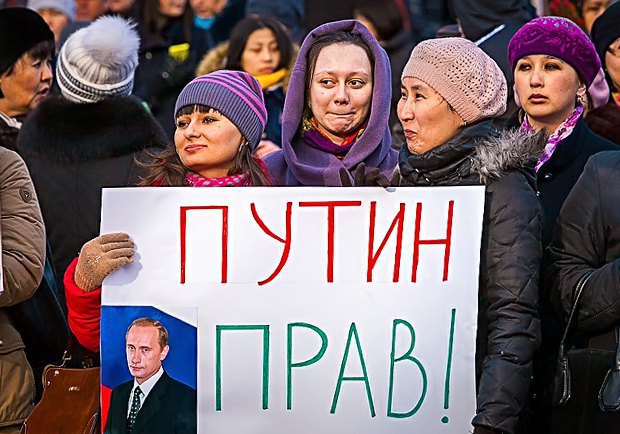
In fact, this would essentially mean the Anschluss of Belarus by Putin's Russia, whose industrial potential and hard-working people will be put at full disposal of big Russian capital close to the Kremlin. At the same time, formally, from a purely legal point of view, it will be impossible to undermine this - all the legal prerequisites for this Anschluss have been put in place long ago and signed personally by the president of Belarus. The problem of Belarus is that for the last 20 years the only guarantee of its independence was the political will of one person, Alyaksandr Lukashenka. However, today this is not enough.
Lukashenka was between the hammer and the anvil. On the one hand, there are the brewing discontent and growth of protest sentiments in Belarus, on the other hand, there is pressure from the West demanding the democratization of his regime, and also there is economic and military-political pressure from Russia. Let us not forget that Putin can use not only force but also the rouble. As they used to say in the ancient times: where an arm cannot pass, an ass loaded with gold will do.
Lukashenka could face the choice: either to fight against "fraternal" Russia (we can imagine it perfectly well how Russian mass propaganda channels watched in Belarus can present it), or get a life-long and rather good and honourable sinecure of the head of the Union State.
If the scenario of a "peaceful" Anschluss of Belarus is implemented, it is obvious that Ukraine and the Baltic states (in particular Lithuania) and Poland will find themselves in a very difficult situation.
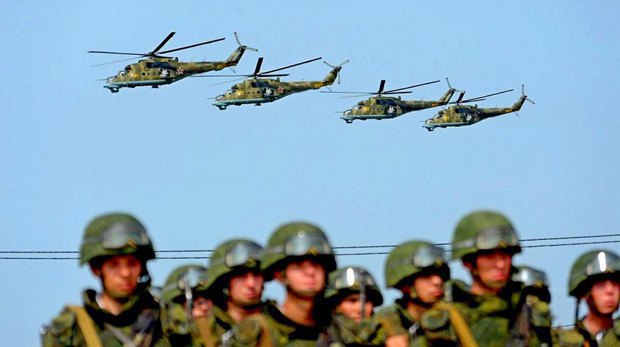
Ukraine
Ukraine in this case will be surrounded on four sides: from the north and northwest by Belarus, from the southwest by [Moldova's breakaway] Dniester region, from the south (Crimea), and from the east (DPR-LPR and Russia). After the Anschluss of Belarus, Russian troops may try to completely cut off Ukraine from the outside world. For example, units stationed in the Dniester region and Belarus can move towards each other and cut off the country from its western border with the EU. Similarly, Russian troops deployed in Crimea can simultaneously move, on the one hand, towards Odesa and the Dniester region. The other part will move in the opposite direction, eastwards, towards the already occupied territories (DPP-LPR).
In this case, Ukraine will be in a difficult situation and its fate will depend entirely on its ability to resist the aggressor.
Lithuania
Lithuania will find itself in no less critical situation if the mentioned scenario of the Anschluss of Belarus gets implemented. The main goal for Putin in this situation will of course be to "pierce" a corridor through its territory towards Kaliningrad Region. And southern Lithuania with Vilnius in this case may end up as a certain "consolation prize" for the aggrieved national consciousness of a certain part of Belarusians. Vilnius "for the Belarusian elite and nationally-oriented intelligentsia is the spiritual capital, a cult city, a historical symbol of the 'Golden Age' of the Belarusian statehood," Dzyanis Lawnikevich wrote.
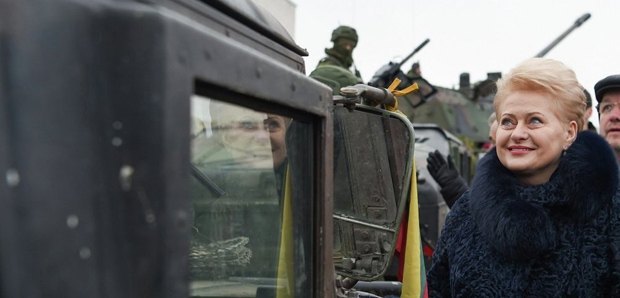
Of course, one can argue that Lithuania is a member of NATO, recall paragraph 5 of the NATO Charter (an attack on one of NATO members is considered an attack on the entire Alliance). But de jure is one thing, and de facto is a different one. Since the beginning of Putin's aggression against Ukraine and even earlier – since the attack on Georgia in 2008, Putin has constantly reminded the idealists about a simple thing: the right only then stands for something, when it is backed not just by force but by political will which is ready to apply it. It is this political will on the part of the West and specifically, the largest NATO countries, that we have not yet observed. Some 3,000-4,000 NATO servicemen deployed on a non-permanent basis in the Baltics is of course very cool, given three divisions (more than 30,000 people), plus at least 10,000 allied Belarusian soldiers, deployed in the west of Russia.
In addition, there is one big geopolitical temptation for Putin in an attack on Lithuania. If NATO limits its response to verbal condemnation of Russian aggression against Lithuania (and this scenario seems more realistic than the immediate transition of the alliance, or at least of France and Germany, to military operations against the Russian troops), this will mean the collapse of the North Atlantic alliance because it will fail its main function, that is the protection of its members.
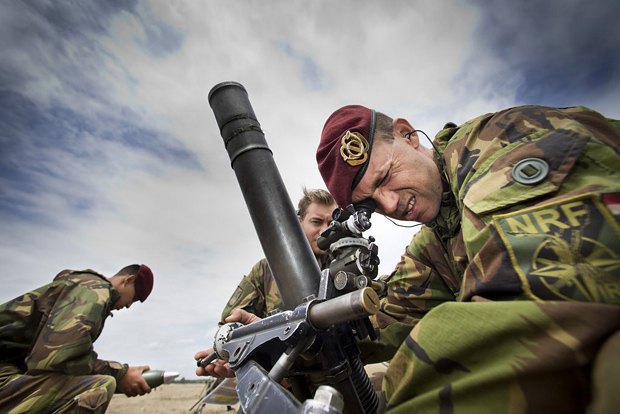
Is the USA of Donald Trump ready to seriously fight against the Russian Federation, considering that, on the one hand, he seeks to "build" relations with Putin and, on the other hand, he has been faced with the threat of impeachment from Day One of his rule, in fact being a "lame duck"? I'm afraid that is also a rhetorical question.
One should not rule out Putin's expansion in the direction of resource-rich Kazakhstan. For example, in the case of a revolutionary change of the regime in this country. The territory of northern Kazakhstan can be occupied under the pretext of "protecting the Russians".
Or [Russia can] capture the sparsely populated, but also energy-rich Turkmenistan. After all, the Russian Foreign Ministry and pro-Kremlin experts periodically express concerns about the security of the southern border of the CIS in this country bordering Afghanistan.
The only thing that can be ruled out is the peaceful development of Putin's Russia. We do not consider this scenario because it is the least realistic one.








